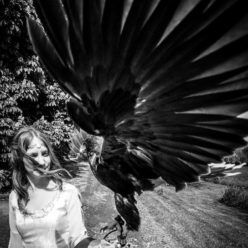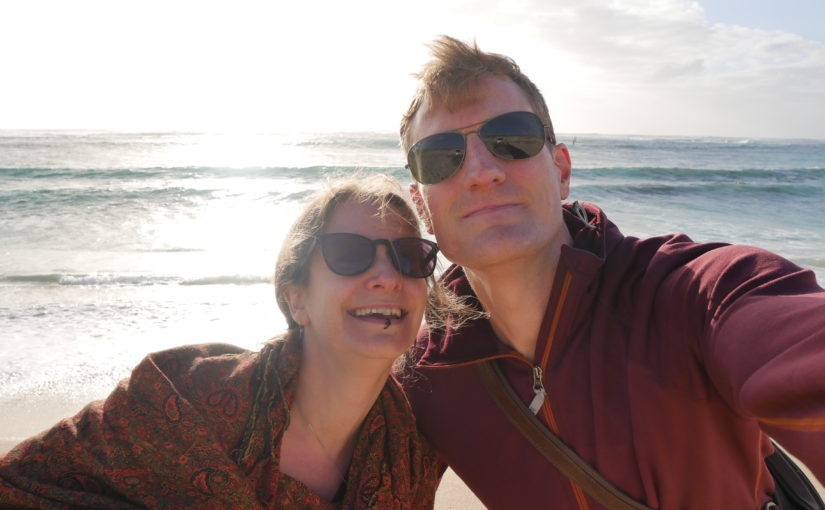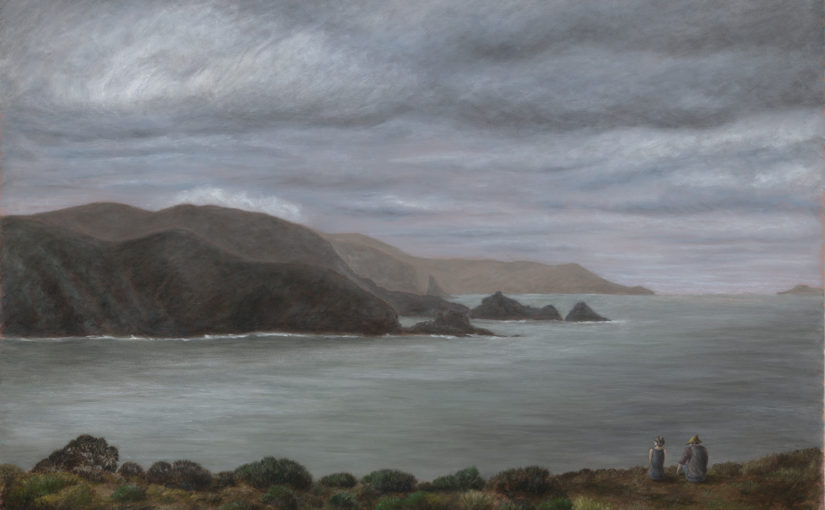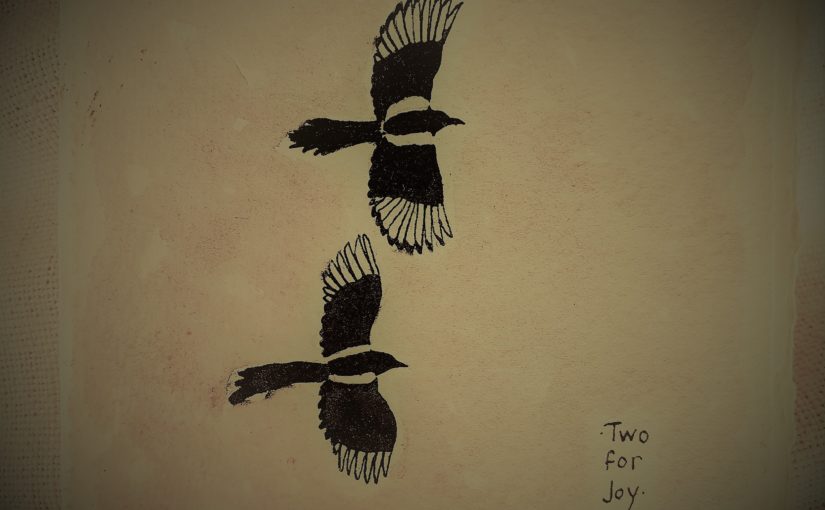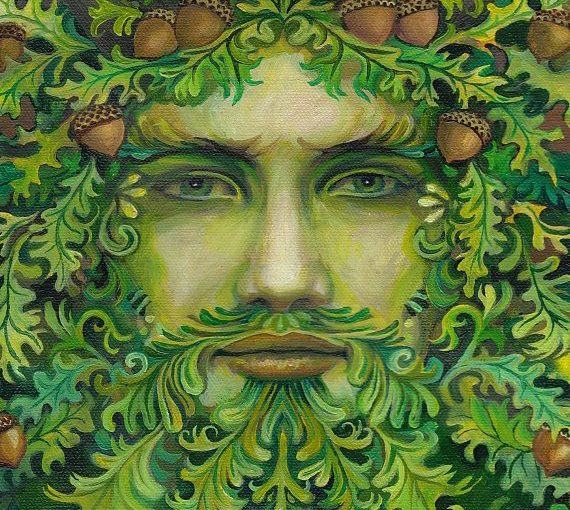I have been languishing under the virility of my first Australian cold which has left me the time (although less the acumen) to ponder on the hedonism that has led to this recent drop in immunity.
Following the onset of a glorious spring where all was right and glittering with the world, we went to Western Australia. People told me it was lovely; not least Helen Waterhouse who used to live and work there (shout out) but I was unprepared for how devastatingly different it was from here. Ya know, I shouldn’t have been; it’s a five hour flight so about the distance from Stansted to Istanbul (oh, is it different here?) but then there is also the ubiquitous eucalyptus that homogenises Australian landscapes to some extent. I was also unprepared for the sort of emotional connection I had. Bear with me.
I have grown up with the knowledge that ‘Grandma was born in Australia.’ But I have never mythologised this. I have never felt drawn by the intrepid adventure of my ancestors to follow their pioneering footsteps. In fact, I’d never have bloody come here if Yates hadn’t got the job. And I don’t think Perth was high on my list beyond bagging all the capitals.
‘Grandma was born in Australia and left when she was two. She lived in a place called Manjimup.’ I have always known these things like you learn your family’s birthdays and how they have their tea. But I did not romanticise them. However, we were thinking, well, New Zealand’s still cold in spring, so we’ll go to Perth and I might as well get to Manjimup – Canberra Conversations: there’s a great truffle and wine place down there so while I’m at it, let’s look up second cousin Laurie…
So I wrote to this chap mam had met years ago on her own Australian trip and he sent me a couple of pictures I’d seen before of my great grandparents. And bugger me, there they were, surrounded by eucalyptus trees (and not a lot else), grinning and squinting in the sunlight and suddenly a dry flash of lightening threaded through the years between them, turning up and thinking ‘faaack, it’s hot – and look at them trees!’ all new and hopeful; and me, doing just the same ninety years later. And it suddenly did make me feel connected to a woman I’d never met who I heard made great cakes, and an old man I barely remember who used to give Beck and me rides on his mobility scooter.
So misty eyed (and thoroughly grumpy – I do not recommend getting a Murray’s bus to Sydney at midnight to get a 7am flight, that’s a shit idea), we landed in Western Australia, hired a car and began hurtling south. If you look at Western Australia on a map, there’s (implausibly) a really really green bit. We drove through miles and miles of orchards. Banished was the brown red landscape with stones and scraggy grass – we drove past apple orchards, hazelnut orchards, pears, cherries, peaches…espaliers, olives…it was glorious. My eyes were fixed to the window drunk on green and wide open space. Pretty little towns celebrating their apples, had bright (and slightly tacky) apple shades on the streetlights, and consisted of nothing more than a row of shops (keeping to the traditional frontier chic – corrugated metal roofs, large verandas….yet still the tragic absence of saucy women in red petticoats) on one side of the street and some sort of memorial garden; and the all important loos, on the other, all surrounded by orchard. This may not be the place to slip into rhapsodies about Australia’s enlightened attitude to public conveniences with which the U.K. has thoroughly dispensed and still insists it has no money, despite the obvious fortunes recouped from their upkeep…but we’ll let that spasm pass.
Manjimup has a very grand entrance…comically so. The town itself did not inspire me terrifically, but the little outdoor museum was marvellous; merging play areas with picnic park space, event space, lakes and strolls with old buildings gathered from around the area and erected there to rest. Here I found the real actual police station (about a room and a half big) where my great uncle William was Chief of Police and thwarted a bank robbery back in the 30s. This enlivened that legendary story for me, which mam had brought back from Australia eight odd years ago.
We then headed to Pemberton, which I am told is actually where Grandma was born. There is a hospital there; didn’t look like the original building grandma was born in (although I’ve rather skipped over the existence of this modern convenience in a recent piece of fiction for dramatic effect) – and as my pop pop apparently had farmland, I assume their little homestead wotsit was a bit further out of that. ‘Pemby’ was even smaller. Again, row of shops on one side of the street; loos and memorial garden on the other. Streets of houses criss-crossing behind up the hill. We stayed in the Pemberton Hotel and I had a fabulous supper of locally cooked trout. Then bed at 8, as we’d pretty much been up 38 hours, and later woke to our first Western Australian morning.
WA doesn’t get behind daylight savings. Eastern Australians have strident opinions on this, but I kind of liked it at the time. It starts getting light around 04.30 (not dissimilar from the U.K. in June), so you wake up a little after that, all refreshed and adjusted because the sun’s been gently whispering in your eyelids for quite a while. And it’s 6am. So you get on with the day nice and early, and are back in bed before 21.00. I’d say that keeps the wholesome population of WA out of trouble! I awoke to the sound of a kookaburra gleefully ecstatic at the morning and sat on the balcony while it rained softly (rain!! Blessed rain! Imagine an Englishwoman welcoming rain!) to engender all that voluptuous verdance around us. Later we strolled down to the little tram; Pemby’s main tourist attraction, which takes you on an hour and a half little ride through the immense forest which it used to be instrumental to managing, and er, cutting down. We bloody loved it. The deal about that part of WA is its forest of giants; Karri trees (a type of eucalypt) are the third tallest trees in the world, after the American Redwood, and Mountain Ash (predominantly found in Victoria and Tasmania) and grow up to 95meters. Thus it was great to actually get in it, properly. This little tram was for transporting logs to Pemberton’s sawmill and forest had been cleared up to 40m either side of the track. Now in 2019, the forest has a fight with the passengers through the open sides of the tram. It was great, you’re brought up in the U.K. being told by headshaking, grieved looking men that you must never lean out the window of a train, followed by horrific legends of decapitation (to which the noxious verb ‘bounced’ is often applied) and here we just merrily leaned out and dodged branches. The forest was carpeted in beautiful flowers, tall bells that rise sort of like fresia or foxglove…dunno what they’re called though, in pink, white, dark pink, orange, and then purple tree hovea that has little flowers a little like bleeding heart, there was native wisteria and even some wattle still, in a softer cream yellow than that in the east. I was in Wordsworthian rhapsodies. You only had to stare at the sky patiently for a little while before great black Carnaby cockatoos flapped across the canopy, or green ring-necks flitted like powered leaves from branch to branch. We stopped at the cascades; a beautiful clear river tumbling over rocks, we admired the white blossoms on the thin leafed peppermint eucalypts, slowed down over perilously high and rickety looking bridges to admire river after river, trying to spot trout or marron in them, and the driver provided such a hysterical commentary that Yates and I laughed the whole way through. Oh it was the best thing ever. And it was great seeing that landscape – here, in this green, British/Irish like green and rain, where my great grandparents had lived, working that forest, struck by that landscape, perhaps with the same wonder as me. I hope so. I hope they loved it.
After that, we drove to the outskirts of Manjimup to the Truffle and Wine company, where we had a splendid lunch of poncey things like salmon mousse, cheese with truffle oil, prosciutto and so forth. Bought some truffle oil. Then whizzed north to Margaret River.
I loved this place too. Again, green as … fuck; cool, sea, hippy little shops, lovely birds, I ate more fish and we booked ourselves, at the expense of $115 each, onto a wine tour. This was bloody amazing, and worth every penny. For this sum, we were driven around all day to four different vineyards, a chocolate place, an Italian sauces place, a brewery, given lunch, tried about 35 different wines, did a fun little science thing of mixing cabernet with shiraz to make personalised blends for lunch, and got dropped off at a bar where we were given shots. Fecking amazing. We were on the fun bus with two Danish sisters, a couple from Switzerland, a couple from Sydney and another British couple. Who after 35 wines and a pallet of beer, still couldn’t crack a smile. Bloody hell. But everyone else was fascinating and wonderful and I dizzied around blurrily loving everything. Beautiful vineyards in green fields stretching off towards the sentinel wall of eucalypts, smiling ironically at this European imposition. But who doesn’t like wine, right?
Apparently I was hard work on the way home. I can neither confirm nor deny. The next day we drove to Perth and met second-cousin-once-removed, Laurie – grandson of the bank robbery thwarting policeman who was older brother to my great grandfather. And even though this sorta long lost relative thing is very much not Yates’ bag, and I didn’t really think it was mine either, I loved it. Cousin Laurie is an incredibly cheerful fellow, upbeat, feisty, full of jokes, and his wife Lorraine just the same. I felt faint shadows of regret that we didn’t grow up part of those lives. Again, would grandma have been as irrepressibly cheerful and open hearted as her cousins if she’d run around barefoot with rosellas in her eyes in a place where remoteness deregulates so many of the social rules of 1940s London? If she hadn’t come back? She was a great woman in a crisis – would the struggles presented by that landscape have developed her better? Well, they say the unpopularly irritable women accused of witchcraft in the old days were often suffering pain from what are now preventable afflictions, and grandma suffered arthritis all her life. Not that grandma was a witch. But I reckon the pain she lived with would corrupt a lesser woman to warped misery, never mind the capacity for the huge expanse of love she gave us as children. So I don’t know how differently grandma’s life would have turned out, but I did feel a marvellous and uncanny affinity with these people who shared genetic material with me; particularly as I have never met or knew any other members of grandma’s family.
Then we went to a fancy restaurant in the Nedlands suburb of Perth where we drank a fabulous bottle of SSB and I ate a Balmain bug. The next day we hit the beach at the amusingly named Cottesloe…got nuclear burned but at least England won the rugby. The last day we took the ferry to Rottnest to see the quokkas; look up pictures if you’ve never seen them; but Rottnest seems to base its whole tourism strategy on instagraming selfies with quokkas. And they’re little and cute and stupidly brazen, so when you arrive on the settlement, they’re everywhere. You’re not supposed to touch them as multiple signage instructs you, but sometimes they fair rub against your legs like cats trying to pick up crumbs. There were kids stroking them like puppies, and everyone shoving things in their faces; bits of food, leaves, cameras. So yeah nah, decided to just watch them from a respectful distance. But if you’re hovering by a bush, another family strolling by realises you must be looking at a quokka and come running up with their phones and there goes respectful distance.
So I’m looking forward to the first quokka-ravages-a-toddler story in the news.
Full list of recommendations: McHenry Hohnen cellar door (in Margaret River, Steve’s restaurant in Nedlands, Perth), Hay Shed Hill, Brookwood Estate, The Truffle and Wine Company Manjimup.
